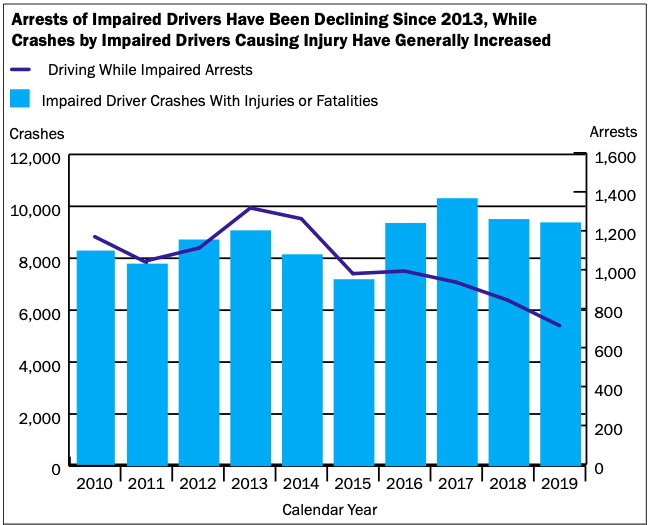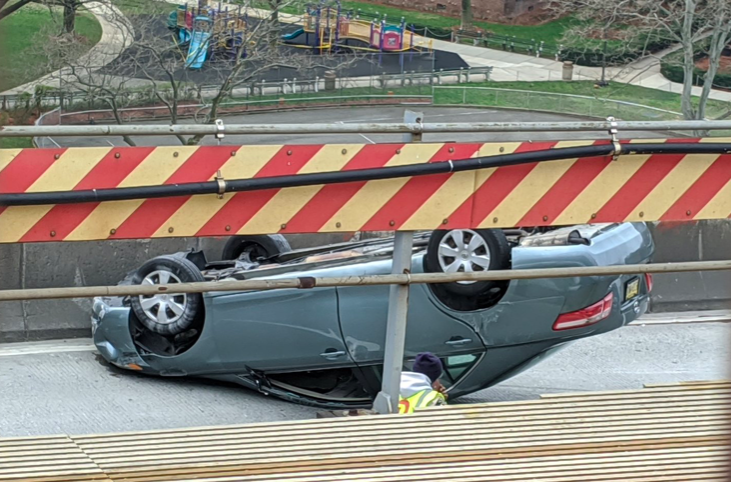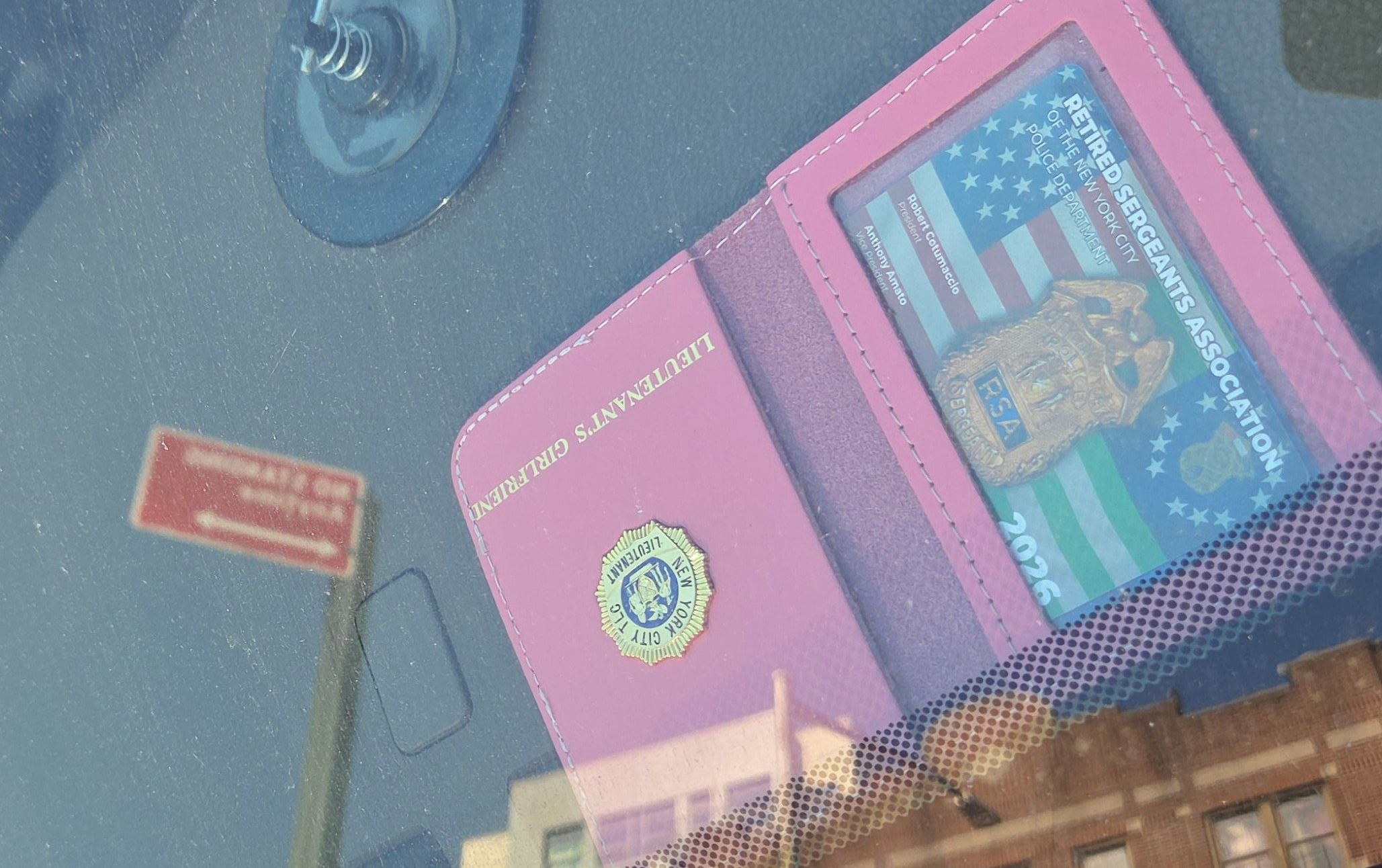The NYPD is arresting fewer drunk drivers — and it’s costing more than lives.
According to a bombshell report issued today by the Independent Budget Office, arrests of impaired drivers have fallen from a recent peak of 9,879 in 2013 to 5,339 in 2019, a drop of about 46 percent.
Meanwhile, the number of fatal or injury-causing crashes caused by a drug- or booze-addled driver has risen from 942 in 2015 to 1,234 in 2019, a 31-percent increase, the report shows.
“One would hope that the numbers have gone down because there’s less of a problem, but the crash data doesn’t indicate that that’s the case,” said Bernard O’Brien, who authored the report after comparing state crash data with state arrest numbers. “Such a trend figure is noteworthy and raises some interesting questions.”
(We reached out to the NYPD and City Hall with some of those interesting questions and will update this story if we hear back.)

The data not only raise questions of policy and police practices, but also show the deep cost of drunk driving — and not only in the thousands of people who are killed or injured by drunk drivers in New York City every year. Beyond that, the city is receiving millions less from the state’s Special Traffic Options Program for Driving While Impaired (STOP-DWI) program, which collects fines and penalties from convicted drunk drivers and then reallocates it back to the jurisdiction where the arrest was made.
In 2012, the city recouped $7 million from the fund. Last year, the city got back only about $2.5 million — a drop of almost 65 percent.
The report also comes as activists at Transportation Alternatives and Families for Safe Streets are still smarting over the failure of the state legislature to pass legislation to lower the threshold of drunk driving from .08 blood-alcohol content to .05.
TA Deputy Director Marco Conner DiAquoi also pointed out that enforcement is only one tool at the mayor’s disposal — and one that would be less needed if roads were properly designed to prevent reckless driving.
“The increase in crashes is deeply disturbing but Vision Zero should not be centered around police enforcement,” he said. “Street design is always on duty. If Mayor de Blasio had more quickly and aggressively scaled street safety redesign projects, our streets citywide would prevent drivers from causing harm and would protect vulnerable street users from crashes in the first place.”
O’Brien could not offer any theories as to why DWI arrests would be down in a period when serious DWI crashes is up, but it’s not hard to come up with possible reasons. Misdemeanor arrests have fallen generally speaking since Mayor de Blasio took office, so it’s not inconceivable that the NYPD has altered its approach in other areas, too. One law enforcement observer (who requested anonymity because he works with police) speculated that DWI arrests are always dangerous and fraught — indeed a police officer was killed earlier this year by a drunk driver as he secured the scene of an unrelated crash — and officers may not feel confident that aggressive arrests will play well in the current climate.
The New York Times has also reported that breath tests administered in the field are unreliable, so there is a chance that such information has played a role in the drop in arrests.
But the numbers should be alarming if only because the trendlines are going in the wrong direction — and show a contrast to hype from companies such as Uber that claim to have played a role in reducing drunk driving. And the data definitely suggests that the NYPD is not being proactive about DWI arrests.
Meanwhile, recreational use of marijuana has been, effectively, legalized in the city, though the IBO report does not include crashes after 2019. Research from states and cities that have legalized pot is inconclusive whether legalization increases intoxicated driving, given that many would-be impaired drivers may simply have shifted from booze to bongs.
“Historically, the collection of such data in drug-impaired driving cases has been sporadic or nonexistent,” Neil Axel,a District Court judge in Maryland, wrote for the American Bar Association last year. “With the absence of good, hard historical data, it is difficult to make the necessary comparisons to reliably ascertain the precise impact that marijuana legalization has had on the number of drug-impaired fatalities.”
UPDATE: After initial publication of this story, NYPD spokeswoman Det. Sophia Mason sent over the following statement, which made reference to rideshare, but did not provide evidence to support the claim:
Arrests for Driving While Intoxicated have gradually decreased since ride sharing has become more popular, providing a safe ride for intoxicated partygoers. We remain in unprecedented times amid the continuing strains of COVID 19 which has significantly impacted DWI arrests. NYPD continues to conduct Vision Zero traffic safety initiatives citywide each month especially on holidays and weekends. These initiatives include the Vision Zero High Visibility Enforcement corridors, the Bicycle and Pedestrian Safe Passage initiatives, as well as having our Highway Patrol officers focusing on speed and impaired driving during hours of darkness when it is most prevalent.






